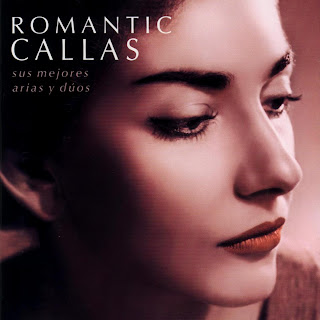La donna è mobile
Thus, I'm predisposed to find this performance better. However, Elīna Garanča far surpassed even Jossie Pérez in her interpretation of the title role. Overall, this performance can best be described as having incredible presence. The character's came to life, the emotions were in your face, the sultriness of the whole scenario wildly unbridled. In my opinion, this is attributable to the chemistry between the performers, the interpretations of the performer's individually, the conductor, and the director.
Now, a quick run through of the characters. Elīna Garanča, in her interview during intermission with Renée Fleming mentions that some productions call for a freedom-oriented Carmen, others for a sex-oriented Carmen. Ms. Garanča balanced the two impeccably. Her acting, dancing, and sensual teasing of not only Don José, but all the men of the cast through little touches, slight moves of her body, and brilliant prop use portray a confident, free-spirited, sexy woman who knows exactly how to handle men. On top of this, her singing, both in famous pieces such as Habanera and throughout the opera is passionate and incredibly present with ringing fortissimos and tingling pianissimos. Oh and... She's gorgeous...
I am going to put a personal opinion in here only because it helps to further the review: I don't particularly like Roberto Alagna. He's not bad, but it's hard to feel great about him when artists of the past seem so far superior. However, in French opera, Roberto Alagna is at his best. Particularly in a role like Don José with a mid-range tessitura. Alagna's voice doesn't soar to high notes very easily (he had some difficulty switching registers getting to the pianissimo Bb in "La fleur," and his recordings of "Ah! Mes amis!" from La fille du regiment illustrate this. However, in his midrange Alagna possesses a ringing voice that almost always seems to have the passionate of the tenoral vocal cry somehow sublimated into the tone constantly. This makes an excellent sound for a constantly passionate character like Don José.
Perhaps above their individual successes however, it is the interplay between the two artists that makes the show fantastic. The two of them are incredibly capable of reading each other and playing off of each other's decisions and passions. This is no doubt aided by the fact that they have sung the opera together before.
Smaller characters were also excellently played. I found Teddy Tahu Rhodes did a great job as Escamillo. His frankness and forwardness gave the famed toreador a sense of self-assurance that did away with the need for added arrogance or flash and made him simply the confident, attractive superstar that any girl, even Carmen, falls for, to the chagrin of simpler men like the soldier Don José. Similarly, the openness and sincerity with which Barbara Frittoli played Micaëla made her seem an incredibly driven, brave young woman fighting for a lost man. Keith Miller did an excellent job in the character role of Zuniga and is also a kind man who I have met personally. I'm sure that his new wife, proud as she is of him singing at the Met, is glad that he isn't like Zuniga in real life.
Driving all of this wonderful music and passion was conductor Yannick Nézet-Séguin making his Metropolitan Opera debut. Seeming incredibly well prepared and enjoying himself thoroughly while sincerely guiding the orchestra, he really helped to create a production full of life and presence. All in all he and the director, Richard Eyre, helped the excellent artists on stage craft a production that left me ringing. My only complaint was that the jump from Don José's sadness to his murder of Carmen was a bit swift. This however, I attribute in large part to the librettist and Bizet. I cannot conceive how a better build up to this would-be cathartic moment could be created. All in all, it was an excellent production able to take me, doubting whether I actually liked the opera, to realizing what an incredible work it is.



Comments
Post a Comment